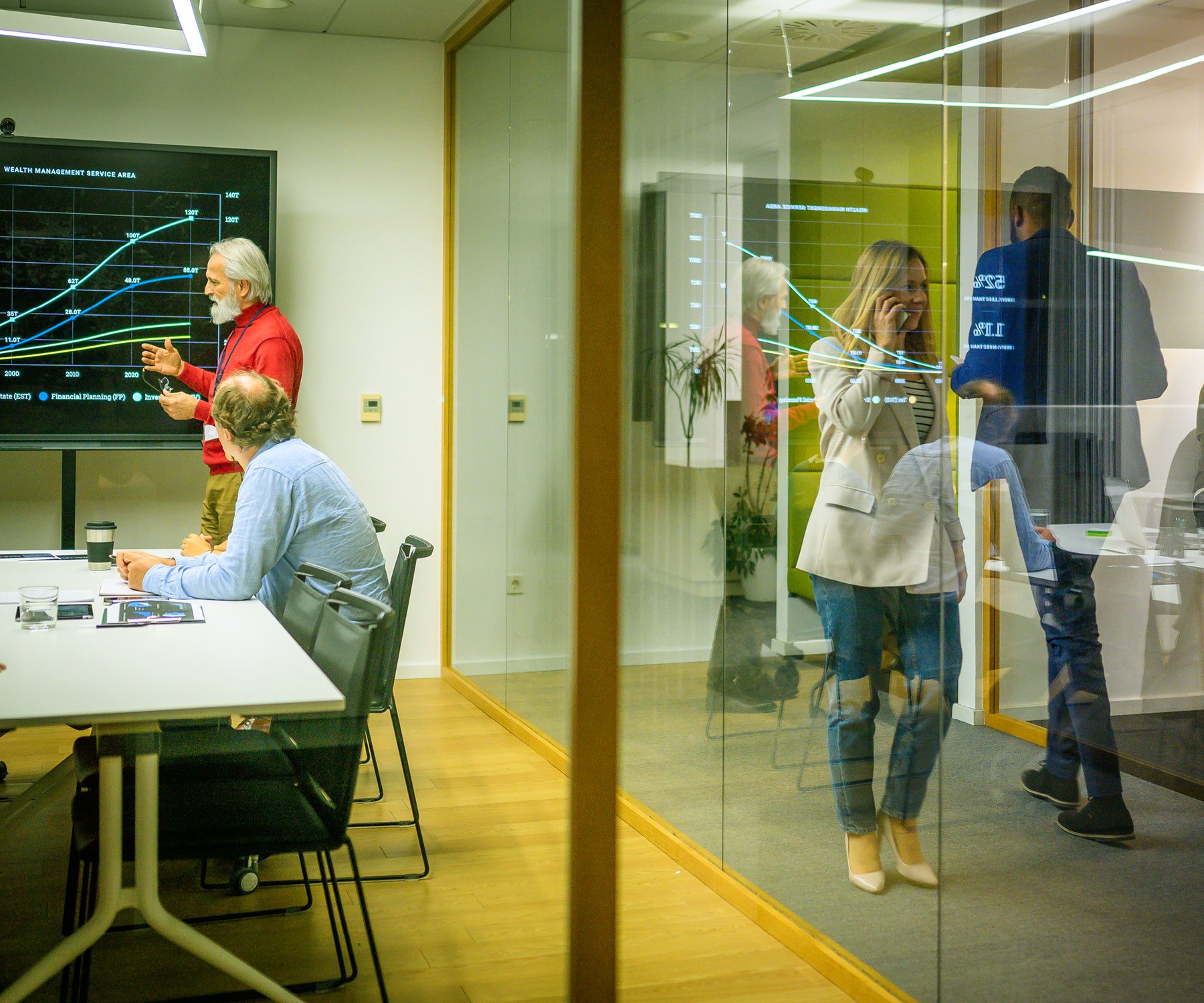Is it too late for our systems? This question haunts many of us as we witness the accelerating decline of structures we once believed unassailable. Environmental degradation, political polarization and the vulnerabilities in healthcare systems are just a few that come to mind.
Historically, periods before the collapse of power structures have been marked by unprecedented technological advancements, wealth and power. Yet, these eras also reveal a troubling decline in duty and service to others, replaced by a relentless pursuit of wealth and fame. As society’s focus shifts away from the common good, more individuals become captivated by entertainment and fame rather than community service.

For decades, modern business leaders have been indoctrinated with the belief that the sole moral purpose of business is to maximize shareholder profits.
John Glubb’s study of empires uncovers a disconcerting pattern: societies rise due to a sense of duty and service to others, reach their zenith through strong business practices, and then crumble due to selfish power, lack of duty and service to the common good, ultimately giving way to new systems. Remarkably, over the past 3,000 years, this follows a pattern of about 10 generations of rise and then fall.
So, are we now on the brink of such a collapse? Assuming we take the year 1776 as the marker for the United States and 25 years per generation, we are nearing that ten-generation marker. With Gen Z up and coming, do we need to prepare them for a breakdown in order for something better to emerge? As business leaders, the onus is on us to confront these questions and recognize the urgent need to rebuild our foundations.
The moral conundrum: Profit versus purpose
At the heart of our current predicament is a fundamental conflict that societies over the past 3,000 years have reckoned with: the tension between building profits to increase societal wealth and the need for a healthy, functioning society that relies on duty, service and goodwill toward others.
For decades, modern business leaders have been indoctrinated with the belief that the sole moral purpose of business is to maximize shareholder profits. In fact, it was Milton Friedman’s 1970 op-ed in the New York Times that postulated the argument that the moral responsibility of business was to maximize their profits, which was readily accepted by the business and government community.

As leaders, we have the responsibility to cultivate environments where humanity can thrive amid the chaos.
Yet, this myopic focus has led us into a state where the systems designed to support business no longer serve the majority of people. Decades of workforce research paint an alarming picture of disengagement, inequity and poor health. In fact, Monday mornings are the most likely day for a heart attack, often attributed to the increased stress of the return of the work week.
So, while profits are undeniably essential, we must ask ourselves a crucial question: how much is enough? How can we balance optimizing profits with safeguarding humanity in the workplace?
Dynamics driving the chaos
There are at least three interrelated dynamics that are driving us toward systemic decline and potential collapse. Their confluence creates a complex and challenging landscape that is difficult to navigate and even harder to prepare for.
1. Imbalanced labor markets: In developed economies like the United States, even if every unemployed individual found a job tomorrow, we would still face over one million unfilled positions (as of August 2024). Current job demand is concentrated in critical sectors such as healthcare, construction and government. Yet, societal values have shifted toward glorifying careers in entertainment, tech and social media influence.
Studies have shown that young people increasingly aspire to be celebrities, social media influencers or entertainers rather than pursuing traditional professions like law, medicine or engineering. This disconnect destabilizes our workforce and devalues essential roles. While a robust job market appears on the surface with consistent and even surprising job and wage growth, underneath it reflects a broader shift away from a supply of social service and civic duty workers, which are essential to a healthy society.

There are at least three interrelated dynamics that are driving us toward systemic decline and potential collapse.
2. AI disruption: AI is rapidly transforming the labor market. Research from the Upwork Research Institute shows that this shift favors highly skilled workers, while those in lower-skilled jobs must quickly reskill. For decades, we’ve trained business administrators to excel in planning, commanding and controlling, awarding them graduate degrees for their competency in these leadership styles.
Consequently, recent research from Slack found that most employees still prefer administrative tasks, even with AI assistance giving them more free time at work. Our current system doesn’t support the learning, upskilling and value-added activities needed to keep pace with AI advancements.
3. Shifting social contract: The traditional levers of loyalty that organizations once relied on to attract and retain talent are losing their grip. The cost of living is rising faster than wages, exacerbating inequality and leaving many workers feeling disenfranchised. This shift is fracturing the social contract between employers and employees, leading to a workforce that is increasingly looking to engage with multiple employers at one time.
Gen Z in particular is gravitating toward careers that allow them to build a portfolio of work rather than remain tethered to one organization. The problem is that our current talent management systems are built for and favor the full-time employment model.
Restoring sanity at work
To counteract this chaos, we must focus on creating ‘islands of sanity’ within our organizations – environments where all types of workers feel creativity, generosity and resilience can flourish and where people feel valued and respected. We must rebalance the relentless pursuit of profits at the expense of humanity.
Here are four principles based on decades of research that can course-correct our decline:
1. Dignity: Dignity in the workplace is achieved when individuals feel they are making a meaningful contribution, are respected for their efforts and have the freedom to express themselves. Our society needs to bring dignity back to service-oriented jobs. We must value the work that is done by hand as much as we do the work that is done by the mind.

There is an opportunity for something new to emerge – an era where business leaders prioritize humanity, dignity and community as the cornerstones of a resilient and progressive future.
2. Learning and growth: Numerous psychological studies have found that people are at their best when they are learning and entering a state of flow. Work redesign is essential to move workers away from administrative tasks, which AI is better at, toward higher-value work solving the most pressing needs of our time.
3. Community: Amid the rise of remote work, AI and polarized views, fostering a sense of community is more important than ever. Simply creating more employee resource groups won’t work here. Removing power distance by redistributing control and solving for inequity in our organizational structures is a must to get community right.
4. Stability: Stability is becoming increasingly elusive in a constantly evolving world. Organizations must strive to create stable environments where workers can thrive despite external fluctuations. Overhiring and continuous layoffs as a lever for organizational stability at the expense of workers en masse can no longer be acceptable business practices.
Building islands of sanity
We stand at a pivotal moment as we reach our 10th generation entering the workforce. Recognizing the vulnerabilities that may lead to the collapse of our current systems and taking proactive steps to foster sanity, dignity and purpose in the workplace is not just an option – it is an urgent necessity. As leaders, we have the responsibility to cultivate environments where humanity can thrive amid the chaos.
Is it too late for our systems? Perhaps. But in the potential collapse, there is an opportunity for something new to emerge – an era where business leaders prioritize humanity, dignity and community as the cornerstones of a resilient and progressive future.







